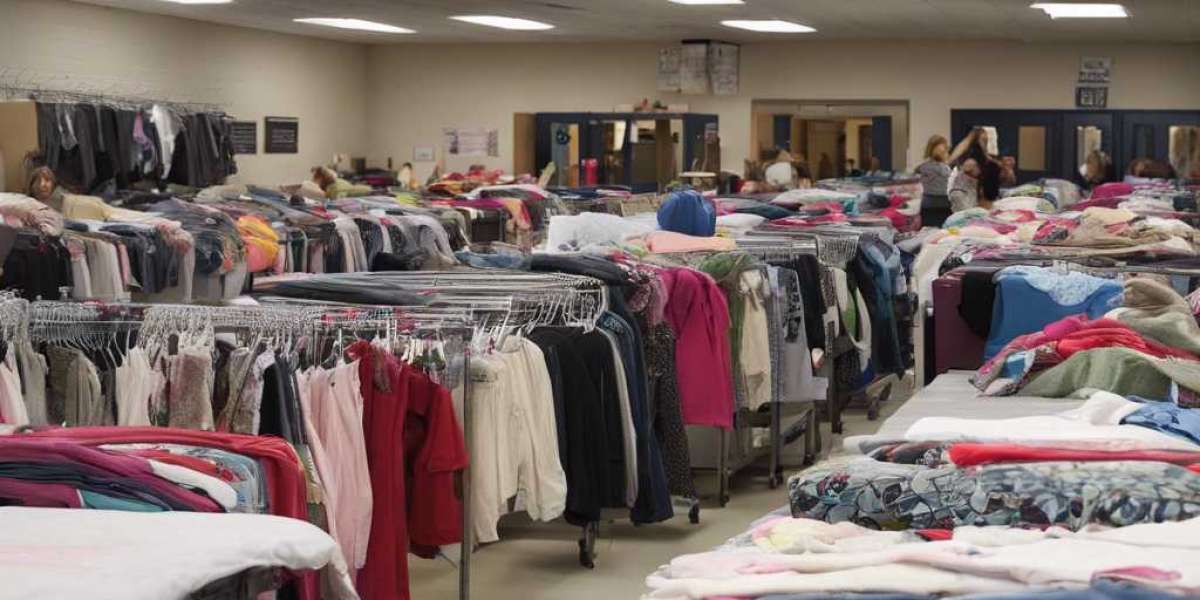Finding a “woman's shelter donation” is easier than you might think. Local shelters often have specific needs that can change based on their clientele and the season. Many women’s shelters provide safe housing, resources, and support for those escaping difficult situations.
Woman's Shelter Donation
To locate nearby shelters, check community websites or use social media platforms where organizations frequently post their donation needs. Local churches and community centers may also have connections to shelters in your area.
Once you identify a shelter, reach out directly to ask about their current donation requirements. Often, they will appreciate any assistance provided but will guide you on the most pressing items needed at that time. Engaging with local shelters not only helps them thrive but fosters a sense of community spirit as well.
Types of items are most needed for donations to woman’s shelters
Women’s shelters often have specific needs that vary depending on the services they provide and the resources available to them. However, some common items that are often needed by women’s shelters include:
- Personal Hygiene Items – These can include items such as shampoo, conditioner, soap, deodorant, toothpaste and toothbrushes, feminine hygiene products, and razors.
- Clothing – Many women who come to shelters have left their homes with only the clothes on their backs. Donations of new or gently used clothing can help provide them with a sense of comfort and dignity.
- Baby Supplies – Women who have young children may also need supplies such as diapers, wipes, formula, bottles, and baby food.
- Non-perishable Food Items – Shelters often provide meals or snacks for their residents but rely heavily on donations to keep their pantry stocked. Non-perishable foods like canned goods, pasta, rice, and cereal are always appreciated.
- Household Supplies – Some shelters also have transitional housing programs where women can stay for an extended period while getting back on their feet. In these cases, donations of household items like cleaning supplies, towels and linens can be very helpful.
- Toiletries – Shelters often provide basic toiletries like toilet paper, paper towels, and cleaning supplies for their residents. Donations of these items can help offset the cost for the shelter and ensure that they have enough supplies for everyone.
- Gift Cards – Sometimes, women’s shelters need to purchase specific items that are not often donated, such as medication or baby formula. In these cases, gift cards to grocery or drug stores can be extremely helpful.
- School Supplies – If a shelter has children staying with them, donations of school supplies like backpacks, notebooks, pens and pencils can help alleviate some of the financial burden on the parents.
- Self-Care Items – Women who have experienced trauma may benefit from self-care items like journals, coloring books, and puzzles to help them cope with their emotions in a healthy way.
- Monetary Donations – Finally, monetary donations are always appreciated by women’s shelters as it allows them to allocate funds towards specific needs or services for their residents. It also gives the shelter more flexibility in purchasing what is most needed at any given time.
Organization that accept Woman's Shelter Donation
Many organizations are dedicated to supporting women who have experienced domestic violence and homelessness. Some of these organizations may accept donations for women's shelters, including:
- National Coalition Against Domestic Violence: This organization works to address the issue of domestic violence on a national level and supports local shelters through fundraising efforts.
- The Salvation Army: This organization operates shelters for women and children, and accepts donations such as clothing, toiletries, and household items.
- YWCA: The YWCA has a focus on empowering women and eliminating racism, and operates shelters for women across the country. They accept monetary donations as well as in-kind donations like clothing, household items, and toiletries.
- Dress for Success: This organization helps provide professional attire for women who are entering or re-entering the workforce. They accept donations of gently used professional clothing.
- Goodwill Industries International: Goodwill accepts donations of clothing, household items, and other goods which they sell in their retail stores to fund job training programs for disadvantaged individuals.
- Women's Shelters Canada: This organization supports emergency shelters for women across Canada and accepts monetary donations to help with operating costs.
- Local Women's Shelters: Many local women's shelters also accept donations from individuals or businesses in their community.
- Domestic Violence Hotline: The National Domestic Violence Hotline accepts monetary donations to support their efforts in providing resources and assistance to survivors of domestic violence.
- Women's Resource Centers: These centers offer a variety of services for women, including counseling, job training, and support groups. They often accept donations of clothing, household items, and toiletries for their clients.
- Homeless Shelters: Many homeless shelters also provide shelter and support specifically for women experiencing homelessness. They may accept donations of clothing, hygiene products, and household items to help support their residents.
It's always best to check with the specific organization or shelter before making a donation to ensure that they are currently accepting the items you wish to donate. Additionally, some organizations may have specific guidelines or restrictions for donations, so it's important to follow their guidelines when making a donation.
How to Donate Woman's Shelter Donation Near Me
Donating to women's shelters is a straightforward process that can be completed in just a few simple steps:
Step 1: Research local women's shelters
Start by researching women's shelters in your area. You can do this by searching online or contacting your local government or community organizations for a list of shelters. Make sure to note their contact information and any specific donation needs they may have.
Step 2: Contact the shelter
Once you have identified a shelter you would like to donate to, contact them directly to inquire about their donation process. They may have specific hours or instructions for dropping off donations.
Step 3: Gather and sort donations
Before donating, make sure to check with the shelter about their specific needs and any restrictions they may have on donations. Often, shelters will have a list of items they are in need of, such as clothing, toiletries, and household supplies. Sort through your donations and set aside items that are specifically requested by the shelter.
Step 4: Drop off or schedule a pick-up
Many shelters will have designated drop-off locations where you can bring your donations during specified hours. If you are unable to drop off the donations yourself, ask if the shelter offers pick-up services or if there are other local organizations that can assist with transportation. Once you have successfully donated your items, be sure to follow up with the shelter to confirm that they have received your donation.
By following these steps, you can easily donate to a women's shelter and help make a positive impact in the lives of those in need. Remember, every little bit helps and any contribution is greatly appreciated. Thank you for considering donating to a women's shelter near you.
Pick Up or Delivery Options
Many women’s shelters offer convenient options for donating items, making it easier for you to contribute. One popular method is scheduling a pick-up service. This option allows you to arrange for the shelter or partnering organization to collect your donations directly from your home. It saves time and ensures that your contributions reach those in need.
If you're more inclined to deliver, most shelters have designated drop-off locations. These spots are typically open during specific hours, allowing you to bring your items at a time that works best for you. Be sure to check the shelter's website or call ahead for any specific guidelines on what can be dropped off.
Regardless of which option you choose, both methods aim to maximize efficiency while ensuring that essential items get into the hands of women who require support and assistance.
Best Way to Donate Items to a Woman’s Shelter
When donating items to a women’s shelter, it is important to consider the specific needs and guidelines of the shelter. Here are some tips for donating items to a women’s shelter in the most helpful way:
1. Contact the shelter first.
Before gathering or purchasing any items, it is best to contact the women’s shelter and ask about their current needs and donation policies. Some shelters may have specific guidelines for donations, such as only accepting new or unopened items.
2. Donate essential items.
Shelters often have limited storage space, so it is important to donate only essential items that are in good condition. These may include toiletries (such as shampoo, soap, toothbrushes), feminine hygiene products, new underwear and socks, baby care items, non-perishable food, and cleaning supplies.
3. Consider special needs.
Many women’s shelters also serve women with specific needs such as pregnant women, mothers with young children, or victims of domestic violence. If you are able to donate items specifically for these groups, such as maternity clothes or children’s toys and books, they may be greatly appreciated.
4. Check expiration dates.
If you are donating food or personal care items, make sure to check expiration dates before donating. Shelters cannot accept expired products for safety reasons.
5.Follow the shelter’s guidelines.
If the shelter has specific guidelines for donations, such as only accepting certain brands or types of items, it is important to follow them to ensure that your donation can be put to good use.
6. Donate gently used clothing.
While shelters may not have a lot of space for large quantities of clothing, they often accept gently used clothing in good condition. Check with the shelter first before donating clothes to see if they are currently accepting them and what sizes and types of clothing they need most.
7. Consider monetary donations.
In addition to physical items, many women’s shelters also appreciate monetary donations. This allows them to purchase items that are urgently needed or cover expenses that may not be covered by donations.
8. Be respectful and discreet.
When dropping off donations, it is important to be respectful of the privacy and confidentiality of the shelter residents. Donations should be dropped off at designated times and locations, and donors should avoid asking personal questions or sharing information about the shelter or its residents.
9. Spread the word.
Consider spreading the word about the women’s shelter in your community and their current needs. This can help bring in more donations from others who may not have been aware of the shelter’s needs.
By following these tips, you can ensure that your donation is put to good use and helps support women in need at the shelter.
Impact of Donation
Donating to women’s shelters has a profound impact on the lives of those in need. Every item, whether clothing, toiletries, or household goods, contributes to creating a safe and comfortable environment. For many women fleeing abusive situations, these donations can offer not just material support but also emotional reassurance.
Beyond immediate needs, donations help empower residents by providing them with resources that promote independence. Access to essential items enables women to focus on rebuilding their lives rather than worrying about basic necessities. This empowerment is crucial for fostering self-sufficiency.
Moreover, community involvement through donations strengthens local networks of support. It raises awareness about domestic violence and encourages collective action against it. When individuals come together to help others, they send a powerful message that no one should face hardship alone.
Conclusion
Donating to women’s shelters is a powerful way to support those in need. By providing essential items, you help create safe spaces for women and children fleeing violence or hardship. Every contribution, whether it’s clothing, personal care products, or household items, makes a difference.
Finding women's shelter donations near you can be an enriching experience that connects you with your community. It’s about more than just giving; it’s about empowering lives and fostering hope. Your generosity not only meets immediate needs but also sends a message of solidarity and compassion.
Take the time to research local shelters and understand their specific needs. Engage with organizations that resonate with your values. Whether through drop-offs or scheduling pick-ups, there are numerous ways to make your donation count.
As we work together to uplift our communities, remember the impact of even small gestures of kindness. Each item donated has the potential to change someone’s life for the better. Let's continue supporting each other—because everyone deserves safety and dignity in their homes.
FAQs
What types of donations are most needed by women's shelters?
Women's shelters typically need a variety of donations, including non-perishable food items, personal hygiene products, clothing, and household items. Essential items often include toiletries (such as soap, shampoo, and sanitary products), gently used clothing, bedding, and baby supplies. Many shelters also appreciate financial donations, which allow them to purchase specific items or services they need.
How can I donate items to a women's shelter?
To donate items to a women's shelter, first contact your local shelter to inquire about their donation process and needs. Many shelters have specific drop-off times or locations. Some shelters also offer pick-up services for larger items or bulk donations. Ensure that the items are in good condition and meet the shelter’s current needs.
Are there any items that women's shelters do not accept?
Women’s shelters typically do not accept used or expired items, including food and personal hygiene products. They may also have restrictions on items like large appliances, furniture, or items in poor condition. Always check with the shelter to confirm which items are acceptable and if there are any specific guidelines.
Can I make a monetary donation to a women’s shelter?
Yes, monetary donations are often highly valued by women's shelters. Financial contributions allow shelters to purchase needed items, pay for services, or support their programs and operations. You can usually make a donation directly through the shelter’s website, by mail, or over the phone.
How can I find a women’s shelter near me to donate to?
To find a women’s shelter near you, you can use online directories, such as those provided by local United Way chapters or national organizations like the Domestic Violence Hotline. Additionally, a simple Google search for "women’s shelter near me" or asking for recommendations from local community centers or social services can help you locate nearby shelters.







